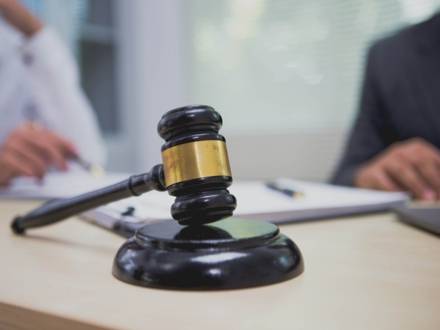Is a Criminal Appeal the Same as a Post-Conviction Petition in Maryland?
 It can be easy to confuse a criminal appeal and a post-conviction petition. Both offer a way to challenge your conviction, but the purposes and processes are different. If you have questions about filing either after a criminal conviction, you should speak with an attorney. An experienced Bethesda, MD criminal defense lawyer can help you understand these options and guide you through the process.
It can be easy to confuse a criminal appeal and a post-conviction petition. Both offer a way to challenge your conviction, but the purposes and processes are different. If you have questions about filing either after a criminal conviction, you should speak with an attorney. An experienced Bethesda, MD criminal defense lawyer can help you understand these options and guide you through the process.
What Is a Criminal Appeal in Maryland?
A criminal appeal in Maryland is a formal request to a higher court to review a lower court's decision after a conviction or guilty plea. It is based on the claim that legal errors were made during the original trial. The goal is to find out if something went wrong that made your trial unfair. Appeals are not a chance to show new evidence. Instead, the court reviews what already happened during the trial.
Under Md. Code, Courts and Judicial Proceedings § 12-301, most people who are convicted of a crime can file an appeal. You must typically file it within 30 days of sentencing. If the higher court finds that there was a serious mistake, it can reverse the conviction, order a new trial, or send the case back for a new sentence.
What Is a Post-Conviction Petition in Maryland?
In Maryland, a post-conviction petition is a legal filing that allows you to challenge your conviction or sentence on grounds of constitutional violations or fundamental legal errors. According to Md. Code, Criminal Procedure § 7-102, you can ask the circuit court in the county where you were convicted to review your case. This process allows you to raise new claims or evidence that were not part of your original trial or appeal. Common reasons for a post-conviction petition include:
-
Poor legal help, such as a lawyer who did not prepare or explain things properly
-
A guilty plea that was not fully understood, meaning you did not realize what rights you were giving up
-
Prosecutor misconduct, like hiding evidence that could have helped you
-
New evidence that shows you might be innocent
-
Sentencing mistakes or unfair treatment that affected the result
If the court agrees that your rights were violated, it can order a new trial, change your sentence, or take other steps to fix the problem.
When Would You Use an Appeal or a Post-Conviction Petition?
The main difference between a criminal appeal and a post-conviction petition is when and why you use each one. An appeal happens soon after your conviction. A post-conviction petition happens later and focuses on fairness and rights. For example, you might file an appeal if the judge allowed evidence that should not have been used. You might file a post-conviction petition if your lawyer failed to explain your plea deal or did not defend you properly.
Maryland Rule 4-242 also says that guilty pleas must be made "knowingly and voluntarily." If the implications of your plea were not fully explained, you may be able to challenge it through a post-conviction petition.
Contact a Rockville, MD Criminal Defense Attorney Today
If you think your conviction was unfair or your rights were violated, the Bethesda, MD criminal defense lawyers at Salvado Law Offices are ready to fight for you. Our team handles every case with care, focus, and dedication.
Attorney Carlos Salvado is also a frequent guest on Agendo Radio, where he speaks up for the Hispanic community. He discusses legal and social issues that affect Latin Americans and immigrants and continues to be a trusted voice and advocate for justice.
Call 301-933-1814 today to schedule a consultation and learn more about your legal options. Se habla Español.











